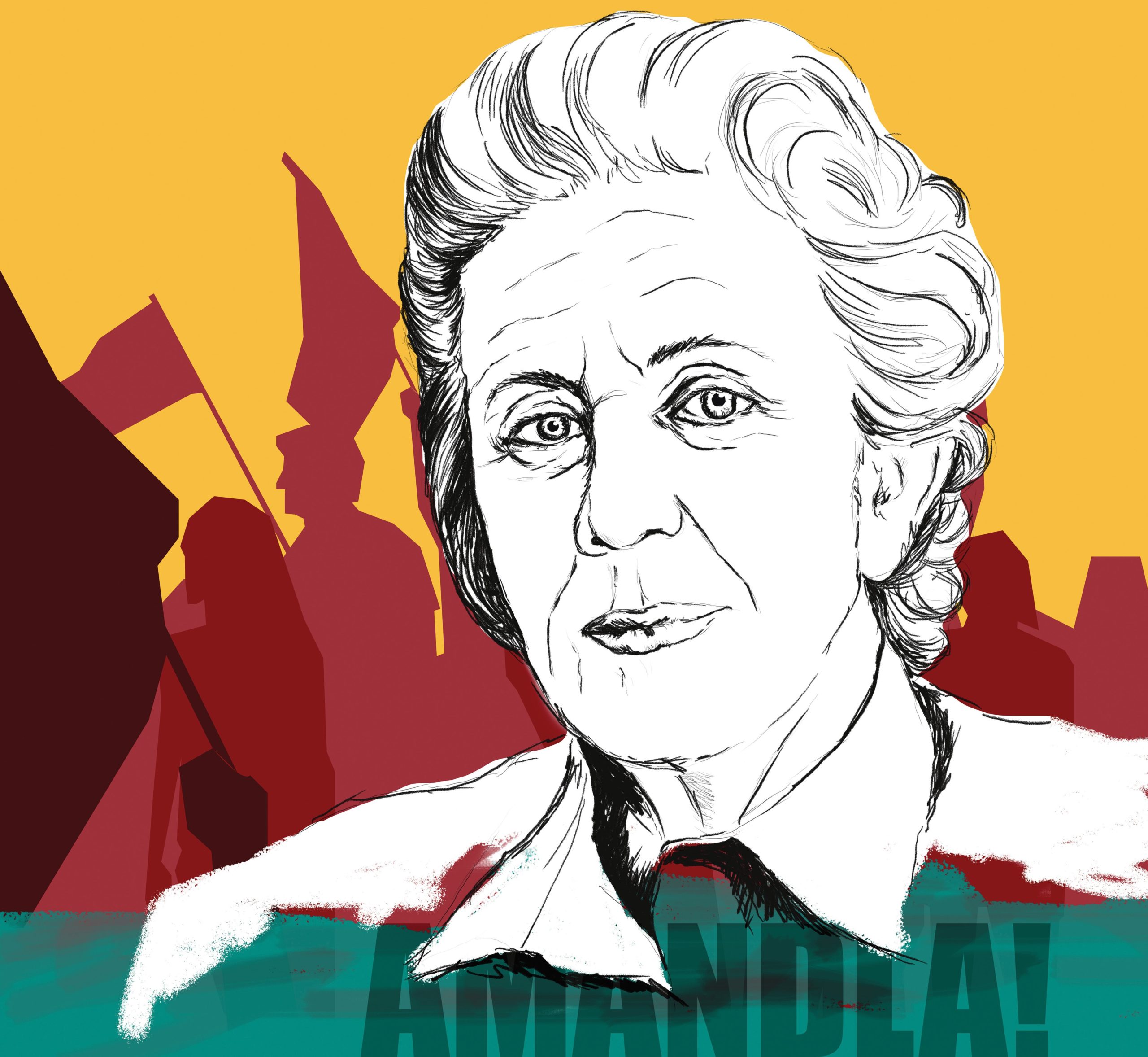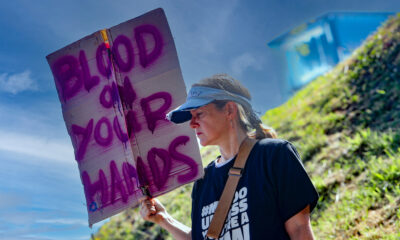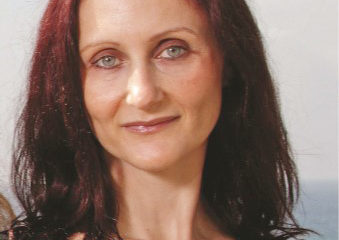
Lifestyle

What I learnt from 32 brave Jewish women
Published
2 years agoon
“Life expands and contracts in proportion to one’s courage. That makes building your bravery, flexing your courage muscle, a sure path to self-growth and personal development.” Anais Nin
The idea of exploring a book about phenomenal Jewish women for young girls to read and be inspired by was something I really wanted to explore. About six years ago, Goodnight Stories for Rebel Girls became a phenomenon, spawning a new genre in non-fiction for kids.
I loved this book and it inspired me to explore a Jewish version, which amazingly had not yet been done. So I began my journey of creating Goodnight Golda – a handbook for brave Jewish girls (and their mighty friends). This book is a compilation of 32 stories of amazing Jewish women from all parts of the world and timeframes, who changed their world and, in so doing, changed ours.
This three-year project was a magic carpet-ride for me through space and time, through the full Jewish experience and its highs and its lows. Each of these women changed our course and stepped into their light, no matter their circumstances.
In exploring her story, each woman invited me to ask questions about where I stand, what I believe, and what I want, because “to travel is to take a journey into yourself”.
In selecting which women to feature, we made sure to touch on seminal moments in Jewish history – the Bible, the Inquisition, the Holocaust, the state of Israel. The result was a curated list of women which included the expected characters – Golda Meir and Hannah Senesh, Anne Frank and Queen Esther. Their sense of calling and sacrifice made them unmissable in the roll call of Jewish heroines.
Sadly, the Jewish narrative is flooded with painful, hard-to-hear or read stories. But we cannot be fed a diet of tragedy and sacrifice alone. What can we learn from Hannah Senesh, the poet and paratrooper, who at the age of 23, faced torture and the firing squad for her daring rescue-missions?
What’s relevant in Anne Frank’s story – the girl who came to represent the Holocaust in the eyes of a young girl by hiding in an attic but then dying of typhoid in Bergen-Belsen just months before liberation?
The nature of sacrifice? Certainly. The power of martyrdom to fight evil? Definitely. But we asked the next question. How can this woman’s life be a role model for us today? How can this story inspire a 21st century woman and girl? It was writer Chimamanda Ngozi Adichi’s words that gave guidance, for “we are not one story”.
So, we set out to find the multiple narratives in each woman’s life.
That Anne, despite her dire, depressing circumstances, never gives up on human kindness and love, is something we can all aspire to. “In the long run,” she wrote, “the sharpest weapon of all is a kind and gentle spirit.”
Though she must have been terrified, looking down on enemy territory, about to leap from the plane, dry mouth and heart pounding in her ears, Hannah jumped anyway. This is a lesson I can keep close to me every day.
But it was discovering stories we didn’t know, meeting women we hadn’t heard of and finding unexpected heroines in unexpected places, which offered the points of sheer delight on this journey.
Belle Levy was one of them – the first Jewish private investigator in New York. Think a Jewish, girly Sherlock Holmes, that was Belle.
Another was Ester Victoria Abraham. Pramila, as she came to be known, was the first Bollywood star – and she was Jewish! Her rise to fame began with a quirk of cultural fate. As Indian cinema began to take off, it wasn’t deemed appropriate by traditional Muslim and Hindu families for their daughters to appear on stage. Jewish families were more liberal and so Pramila became the entertainment during intermission while the reels were being changed. She went on to eschew convention, to become a stage icon, winning Miss India while pregnant with her fifth child and even doing her own stunts.
These women defied the convention of how they should behave. They didn’t care what anyone else thought. They carried on regardless. As we know, well-behaved women rarely make history.
And speaking of “badly behaved”, making Golda Meir the leading lady of the book was in itself a contentious choice. Notorious for her nicotine and caffeine addiction – no less that 12 cups of coffee a day – slandered by some and revered by others, Golda wasn’t a flawless hero who made no mistakes. But isn’t that the point?
When did we start believing the Disneyesque view of the world that told us our heroes need to be superhuman to be admired? It certainly doesn’t serve us. Life isn’t perfect and neither are people. Leadership is nuanced, heroism can be messy, humanity is flawed.
Admitting this imperfection makes aspiring to these heroes’ level of achievement all the more attainable for mere mortals like you and me. Perfection is impossible. Courage, fortitude and triumph, no matter the circumstances, now that’s doable.
And the road to actualisation isn’t always straight and smooth. Think of Bobbie Rosenfeld, “Canada’s best athlete of the first half-century (1900-1950)”. Bobbie was such a superb all-rounder, one commentator remarked: “The most efficient way to summarise Bobbie Rosenfeld’s career … is to say she wasn’t good at swimming.” But then, in 1933, she suffered a severe attack of arthritis, leaving her sports career in tatters. No matter, Bobbie reinvented herself as a coach, sports commentator and writer, helping to topple traditional barriers against women’s participation in sport. Bobbie pivoted long before we invented the word.
Queen Esther is one of my favourites. The story of the innocent young woman who gets chosen to be queen to a foolish and misguided king. Forced into the machinations of a harem, with evil looming over her people, she endures physical exposure, fearful that her true identity will be uncovered, in an environment decidedly unsuitable for any “nice Jewish girl”. Perhaps she had no choice. But hundreds of years later, Auschwitz survivor and thriver of life, Edith Eger, another Goodnight Golda girl, would remind us – you always have a choice. Ester steps up and steps into her light. She breaks the law, she exposes an evil plot, she becomes a whistle-blower about the king’s closest adviser …
For me, of all these things, the bravest thing she did was to insist, after all was said and done, that her story was written down for posterity. In so doing, she didn’t just rescue the Jewish people from genocide in her lifetime, she left her story behind. She saw herself worthy of being a legacy, so she became one.
We all can and should do that. We must. Leave a story behind that matters. It matters not whether it’s a small tale of detail or a grand epic – make it your own and become your own heroine. The world will be a poorer place if you don’t.
Batya Bricker is the author of ‘Goodnight Golda – a handbook for brave Jewish girls (and their mighty friends)’, available in South Africa at Exclusive Books, www.exclusivebooks.com, and internationally at www.bookdepository.com. Visit www.goodnightgolda.com










